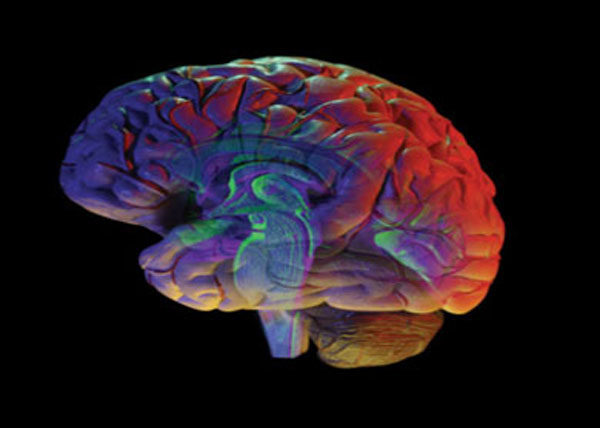Okay, not everyone can authentically be a “super genius.” But, when taking proper care to nourish one’s brain, one can certainly enjoy the long-term benefits of clear and deft cognition, highly functioning memory and relatively stable mood within normal parameters. The continually growing number of Americans interested in preventative care and systemic support with natural products bodes well for the category of brain health.
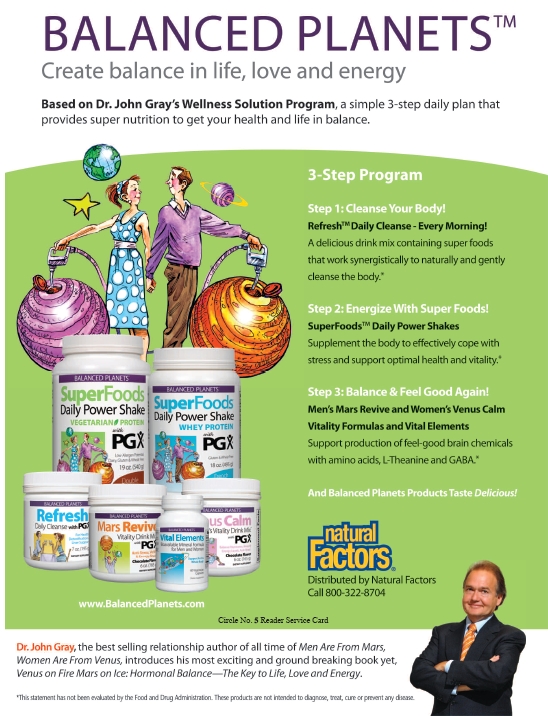 Modern lifestyles are chock full of activities and responsibilities plus a heaping dose of stress stemming from trying to keep it all together without cataclysm. Instantaneous connection with others via cellular devices and the Internet has obscured once definitive lines of separation between work/professional lives and personal lives— adding rather significantly to the cognitive burden. It is no longer odd to hear a young person proclaim that he or she often forgets things — and more frequently, “I forgot it’s (insert date and day here), where did the time go and what the heck was I doing?” Such declarations are also most often followed by a nervous utterance about “getting early Alzheimer’s.”
Modern lifestyles are chock full of activities and responsibilities plus a heaping dose of stress stemming from trying to keep it all together without cataclysm. Instantaneous connection with others via cellular devices and the Internet has obscured once definitive lines of separation between work/professional lives and personal lives— adding rather significantly to the cognitive burden. It is no longer odd to hear a young person proclaim that he or she often forgets things — and more frequently, “I forgot it’s (insert date and day here), where did the time go and what the heck was I doing?” Such declarations are also most often followed by a nervous utterance about “getting early Alzheimer’s.”
If you are nodding knowingly, perhaps emitting a tiny chuckle of your own in solidarity, you likely understand that such proclamations have nothing to do with the debilitating age-related brain disease; should these folks walk into your store, let them know they can support healthy brain function and structure, and really witness the results of that improvement in a reasonable timeframe.
In this spirit, Steve Holtby, president and CEO, Soft Gel Technologies, Inc., Los Angeles, CA, observes that customers respond more favorably to positive claims such as, “improvement in problem-solving ability” and “enjoy clearer memory,” which are desires many healthy adults have. As such, when staff members describe the supplements in this way, not only does the U.S. Food and Drug Administration nod in approval, you will likely increase sales velocity.
Thinking About Cognitive Health
An older mindset among health food retailers was to position brain-support supplements for senior citizens in an effort to assuage fears of developing dementia. The new reality is that this category is applicable and attractive for many demographics who want support for specific reasons. “Memory and cognitive issues are not just a problem for older individuals,” emphasizes Matt Phillips, president of Cyvex Nutrition, Irvine, CA, “and there are many different groups buying cognitive and memory supplements
According to Elzaphan Hotam, CEO of Enzymotec USA Inc., Morristown, NJ (maker of Sharp PS), the age when memory complaints usually begin is around 50. “This said, we do believe there are additional demographics that retailers should also be aware of when looking at the brain support category:
• Pre-school: the issue of proper brain development and nourishment
• School age: learning, focusing, ADHD
• Adulthood: (25–50): focus, sharpness, mental fatigue due to stress and the influence of diet and nutrition.
• 50+: supporting normal or enhancing brain functions.”
Karen Todd, director of marketing, Kyowa Hakko USA, New York, NY, elaborates on a different level. “In the 20s through 40s, there is often some brain cell deterioration that mainly goes unnoticed. From the 40s through 60s, there are the first signs of decline that may be noticed; and in the 60s is the time to fight off further decline and maintain function.”
Phillips links the age groups with sales opportunities for retailers. “College students who desire steady mental energy,  clarity and improved cognition ability and memory retention to compete with their academic peers represent an underserved market—many college students turn to stimulatory energy drinks to achieve mental prowess,” he states. “We encourage our marketing partners and the industry to create and to market responsible cognitive-support supplements to this group.”
clarity and improved cognition ability and memory retention to compete with their academic peers represent an underserved market—many college students turn to stimulatory energy drinks to achieve mental prowess,” he states. “We encourage our marketing partners and the industry to create and to market responsible cognitive-support supplements to this group.”
The 30s and 40s age groups, who are juggling fuller lives and busier schedules than ever before, feel they need to be mentally sharp every day. Further, many in this age group have witnessed an elderly relative or a friend endure cognitive decline or dementia, causing them to be more aggressive in taking care of their own cognitive stability. “Finally, baby boomers are already keen on the support of a healthy brain and in many ways drive the cognitive health market,” Phillips observes.
According to Chase Hagerman, business development and marketing manager at Chemi Nutra, White Bear Lake, MN, recent research has shown that retaining mental sharpness is the number one concern of nearly two-thirds of adults. He points out that new testing methods for the detection of Alzheimer’s disease have shown that cognitive decline rates are developing at a much younger age than originally believed. Therefore, he advises retailers to separate the marketing and merchandising for the appropriate age groups.
Kaitlyn Hastings, public relations specialist for Reserveage, Gainesville, FL, gives an example: “When recommending resveratrol, retailers can suggest 100 mg for individuals in their 20s, 250 mg for individuals in their 30s and 500 mg for individuals 40 years old and above.
“ Keep in mind that the cognitive ability to understand the long-term repercussions of actions is the last ability the brain develops; this is usually mature around age 25, and can partially explain the “feeling of invincibility” of youth. How does this translate? It challenges the successful sale of supplements for long-term preservation and prevention; as this audience likes to stick to the instant gratification products.
 However, Sunil Kohli, COO of Health Plus Inc., Chino, CA, encourages retailers to be more aggressive in marketing and merchandising brain-support supplements to younger consumers. “Consumers need to pay attention to their cognitive health while in their late teens/early 20s. Good habits began then—especially for those in college or on the learning-curve beginnings of a career—will help preserve cognitive health for later. Retailers should do all they can to teach high school and college kids to stay away from stimulant ‘energy’ drinks that do nothing for supporting their cognitive abilities.”
However, Sunil Kohli, COO of Health Plus Inc., Chino, CA, encourages retailers to be more aggressive in marketing and merchandising brain-support supplements to younger consumers. “Consumers need to pay attention to their cognitive health while in their late teens/early 20s. Good habits began then—especially for those in college or on the learning-curve beginnings of a career—will help preserve cognitive health for later. Retailers should do all they can to teach high school and college kids to stay away from stimulant ‘energy’ drinks that do nothing for supporting their cognitive abilities.”
Back to the Egg
Without a doubt the instinctual concern for healthy brain function and structure begins with women as they start to plan a family or discover that they are pregnant.
“At birth, the average baby’s brain has about 100 billion neurons; most of which are unconnected and undeveloped,” explains Jayson Kroner, CSN, health and fitness editor for NOW Foods, Bloomingdale, IL. “Therefore, during this time it is absolutely crucial that infants are provided nutrients needed to support optimal brain development.”
Holtby reminds that there is a rapidly growing body of evidence that diet can influence the development and functioning of the brain in utero, and that there is significant evidence supporting the belief that the mother’s diet during pregnancy and the infant’s diet in the perinatal period have longterm consequences. In infancy, theoretically, breastfeeding provides nutrients, such as long-chain fatty acids that may affect infants’ brain development, which are not adequately provided in most infant formula sold in the United States.
Dallas Clouatre, Ph.D., of Los Angeles, CA-based Jarrow Formulas, believes the first area that parents should examine is the mother’s diet and points to findings of a recent nutritional review explaining that there “are periods during perinatal development in which specific nutrients are required for optimal development, and there is growing evidence that optimal dietary intake of these nutrients, which include iodine, docosahexaenoic acid, choline and folate, is important.” Researchers pointedly emphasize that the infant is not protected from the inadequacies of the mother’s diet (1).
When it comes to diet, says Clouatre, “The nutrient choline brings to mind the more general issue of good nutrition for children. There are relatively few sources of choline nutrition available for children and the best of these undoubtedly is the egg. Parents should look to fortified eggs as supplements to promote nutrition during peak brain development (2).
Kohli further emphasizes the role of diet for children, and this must be strict because not only does it influence a healthy brain, it dramatically reduces obesity: “Get children to eat lots of fish during the week. Tuna, salmon, tilapia, mackerel, it’s all good. Grill it, saute it and serve with organic vegetables and brown rice/whole grain pasta. Say ‘no’ to sodas and junk beverages. Junk food and beverages can often cause brain fog as well as even exacerbate behavioral issues and problems focusing.”
In agreement about preparing healthy meals for children is Jolie Root, health educator for Carlson Laboratories, Arlington Heights, IL, who also adds the importance of high intake of DHA and EPA, which can have an impact on attention and focus. “DHA supports signaling, enabling thoughts and memories to form and to be retrieved, and EPA and DHA have been used to boost focus and concentration in kids with learning deficits. There is considerable evidence that children with ADHD are more likely to have a fatty acid deficiency or imbalance. EPA and DHA are essential to proper brain functioning and several studies involving children with ADHD have shown deficiency in these essential fatty acids.”
Resveratrol, adds Hastings, is suitable for shelf placement in this category as it is an enzyme inhibitor and studies confirm that it inhibits 5-hydroxytryptamine and monoamine oxidase, both of which may be inhibited by anti-depressants. 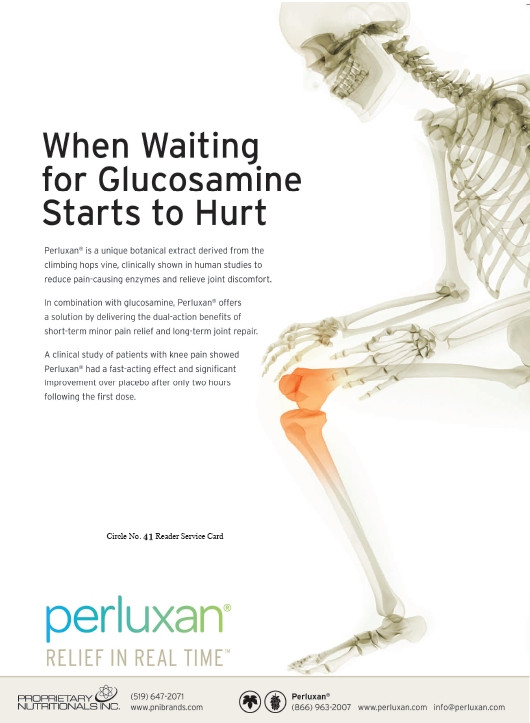
Opening up more sales opportunities in the store, Root says there is much evidence that eating organic also nourishes and can support attention and focus as pesticides have been linked to ADHD. Scientists measured the breakdown products of organophosophate pesticides and found that those kids with the highest levels were almost twice as likely to develop ADHD compared to kids with no detectable level of the compounds (3). Recently, this danger was uncovered in pregnant women. A recent study found exposure during pregnancy was even more damaging than exposures after birth. A 10-fold increase in levels of urinary dialkyl phosphate (DAP) metabolites in the mother’s urine during pregnancy correlated to a 500% increase in the diagnosis of attention disorders in five-year-olds, according to the study of over 300 children (4).
Children, meanwhile, have lots of options now for supplementation, says Hagerman. Retailers can offer them (and moms) brain-support nutrients such as chewables, gummies as well as functional foods and beverages, which are more appealing.
The “Blue” Brain
Children and adults can suffer from myriad mood and emotional roller coasters, often described as depression, melancholy or “the blues.” While an occasional “off” day is rather normal, long periods of depression or cycling of depression signifies the need to get some help.
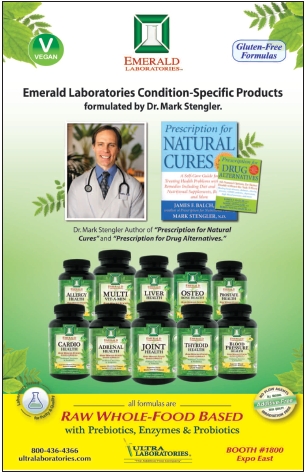 “Clinical depressions (those described in the Diagnostic and Statistical Manual of Mental Disorders IV, as published by the American Psychiatric Association) are primarily disease states,” says Kohli. “But most people understand the feelings of the occasional ‘blues,’ or ‘funk,’ a mild to moderate low mood. Sometimes, this is caused by a sleep disruption the night before, or it can be caused by diet. Sometimes, it is as simple as being a reaction to bad/sad/stressful news.”
“Clinical depressions (those described in the Diagnostic and Statistical Manual of Mental Disorders IV, as published by the American Psychiatric Association) are primarily disease states,” says Kohli. “But most people understand the feelings of the occasional ‘blues,’ or ‘funk,’ a mild to moderate low mood. Sometimes, this is caused by a sleep disruption the night before, or it can be caused by diet. Sometimes, it is as simple as being a reaction to bad/sad/stressful news.”
Mood disorders are often caused by a fluctuating flow of neurochemicals and this condition-specific segment is perfect to nestle within the overall brain health category, Kroner suggests. “Another way in which dietary supplements may support brain health is by supporting healthy levels of neurotransmitters, which determine how effectively or ineffectively messages are sent and received throughout the body,” he states.
Both he and Hagerman assert that one of the strongest supplements for neurotransmitter support is phosphatidyl serine (PS)—the phospholipid most concentrated in the brain and nervous system, where it assists in the conduction of nerve impulses. PS is also essential for the accumulation, storage and release of neurot ransmi t ter s . Kroner notes that other supplements that help support neurotransmitter health include the amino acid L-tyrosine, 5-HTP, GABA, SAMe, NAD and taurine; and consumers have a choice to use any singularly or some combinations.
Regarding SAMe, Clouatre explains that “authoritative reviews, such as that of the RAND Corporation on S-adenosyl-methionine (SAMe), indicate that there is substantial evidence in support of nutritional approaches to protecting against depression and mood disorders. In August of this year, a study was published that took previous findings a bit further (5). The unique quality of the study was that it looked at individuals with major depression already being treated with serotonin reuptake inhibitors and discovered that SAMe supplementation improved the percentage who responded to treatment.”
More and more, omega-3 EFAs are being shown to support mood stability, adding another attractive reason to consume them. Root says that fish-oil omega-3 EFAs were shown to maintain mood stability as far back as 1999. In 2007, a study found that people with severe Major Depression had lower amounts of omega-3s in the frontal cortex, the region of the brain associated with mood problems (6).
“Mood and the ability to process information are linked,” she asserts. “Mood and cognitive improvements were seen in a study of 33 healthy volunteers ages 22–51 in just over one month of supplementation. For 35 days, the participants consumed either 800 mg of DHA and 1,600 mg of EPA from fish oil or 4g of olive oil (as placebo). The participants completed a mood questionnaire and underwent attention tests at the onset of the study and again on day 35. The DHA/EPA group improved significantly over placebo on several mood parameters: including vigor, anger, anxiety, fatigue, depression and confusion. The scores of attention and reaction time were also improved. The individuals showed marked improvement in sustained attention and a significant reduction in errors on the attention test” (7).
Herbs are a gentle protocol for supporting mood and releasing some of the moodrelated effects of stress. Herbalist and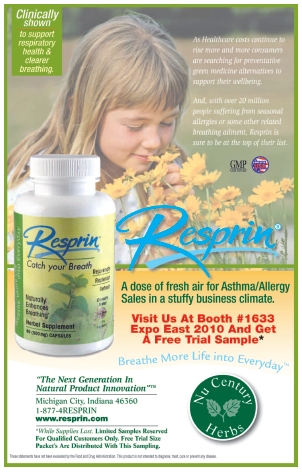 author David Winston, RH (AHG), founder and president of Herbalist & Alchemist, Washington, NJ, says there are quite a few herbs for mood and emotional support. Nervines are tonic herbs that calm, but do not sedate, and are taken for a longer period of time. This group includes fresh oat extract, chamomile, skullcap, damiana, linden flower, lavender, hawthorn and wood betony.
author David Winston, RH (AHG), founder and president of Herbalist & Alchemist, Washington, NJ, says there are quite a few herbs for mood and emotional support. Nervines are tonic herbs that calm, but do not sedate, and are taken for a longer period of time. This group includes fresh oat extract, chamomile, skullcap, damiana, linden flower, lavender, hawthorn and wood betony.
“With stagnant depression or situational depression that becomes chronic, I would recommend holy basil, along with lavender, rosemary and damiana,” he describes. “And even though St. John’s wort has been pegged the ‘depression’ herb, but it is not for every situation, or the only option. It’s useful for mild to moderate cases specifically characterized by a sour attitude.” For chronic grief, Winston recommends a combination of mimosa bark, hawthorn and rose petal.
Winston adds that botanicals are not as quick acting as pharmaceutical medications, but they also do not have the potential adverse effects. Herbs typically take a while to exert the full and intended effect, and he recommends the customer consume them for about three weeks before expecting to feel results. Tinctures and spray-dried extracts are the forms most quickly absorbed into the system.
The Brain Boogeyman
Hands down, the biggest fear healthy people have when it comes to the health of their brains is dementia and Alzheimer’s disease, and for good reason. These diseases cause one to lose not only memory, but also a grasp of reality. Plus, they often lead to fatality. Much work has been done to elucidate the etiology and to develop protocols to lower the risk of development as well as to stabilize early stages with pharmaceutical approaches. “Although old age is the single biggest risk for dementia, Alzheimer’s is not a normal part of aging,” states Holtby of Soft Gel Technologies (maker of Smart PS and EZMega 3). Alzheimer’s can present in people in their 40s and current stat ist ics show that approximately 500,000 Americans have early on-set dementia. “Recent research has pinpointed disruptions in specific memory networks in Alzheimer’s patients that appear distinct from normal aging. The larger point is that while Alzheimer’s is still incurable it’s not untreatable,” he emphasizes.
Dementia is not itself a disease by definition, Kroner clarifies, but rather a broad grouping assigned to the many symptoms that accompany cognitive disorders. It represents a decrease in brain function that can affect memory, learning capacity, language, judgment, behavior and the ability to think rationally. “Dementia is most common among those who suffer with advanced-stage Alzheimer’s disease, but is often implicated in other situations, including those who have suffered emotional and/or physical trauma or are over-medicated. At the physical level, dementia is the result of significantly reduced brain activity, which can encompass a wide range of functions such as poor neurotransmitter activity, damaged or exhausted receptor sites, poor oxygen/glucose utilization, malnourished brain cells, etc.,” he explains.
There are several potential causes of dementia and Alzheimer’s onset, and it appears that a variety of nutrient deficiencies may play key roles. Holtby reports that some research has revealed that a combination of high serum homocysteine and low serum folate has an unhealthy impact on cognitive function in seniors. B-complex vitamins such as niacin and folic acid are vitally important to brain function and help keep the mind sharp. Atherosclerosis that occurs in the brain (cerebrovascular disease) can reduce blood flow to the aging brain and increase the risk of stroke. The decreased blood flow can cause nerve cells in the brain to be lost prematurely, which may lead to a decline in mental function. Research at the University of California at Davis confirms that cognitive decline is not a normal part of aging for the majority of elderly people. In fact, only people with high levels of atherosclerosis or diabetes and those with the apolipoprotein E4 gene associated with Alzheimer’s disease are at high risk for a decline in cognitive ability as they age.
When it comes to the development of dementia/Alzheimer’s, Lakshmi Prakash, Ph.D., vice president of innovation and business development at Sabinsa Corp., East Windsor, NJ, explains that according to recent research, ”increased inflammation may represent the ‘first hit,’ and defective transcription of immune genes is the ‘second hit’ in the pathogenesis of Alzheimer’s disease. The result is the formation of amyloid plaque, a gradual loss of communication between neurons and the fast progression of Alzheimer ’s disease. Cerebral ischemia and impaired circulatory functions are affective factors as well. As antioxidant systems depend on vitamins and mineral nutrients, adequate status of selenium, zinc , copper, calcium magnesium, potassium, vitamins A, D, E, K and B, particularly, thiamine (B1), niacin, B6, B12 and vitamin C are important.”
According to Root, a 2000 study in the journal Lipids shows that Alzheimer’s patients’ brains have exceedingly low DHA levels (8) . Anothe r phys iologi cal anomaly, she says, is changes in the role of normal proteins in the brain (e.g., tau protein or beta amyloid protein) which lead to the development of (in the case of tau protein) neurofibrillary tangles, and (in the case of bata amyloid) the formation of plaques. Further, animal studies have revealed that stress hormones such as cortisol have led to increased bata amyloid levels and plaque formation, somewhat validating another impact of chronic stress. One study giving DHA to the animals that have Alzheimer ’s plaques brought about a reduction in amyloid levels and a reduction in the size of the plaques, showing how DHA protects the aging brain (9).
“We are now starting to realize the importance of DHA in the adult brain not only as a structural component of brain cells, but also as a protective compound that guards the aging brain cells against damage by neurotoxic mechanisms,” Root comments.
 In the view of Todd of Kyowa Hakko USA, healthy cellular function is key, and supplementing with specific nutrients such as omega-3 EFAs and choline-based molecules such as citicoline supply nutrients to the phospholipid membranes that help keep cells intact and functioning optimally.
In the view of Todd of Kyowa Hakko USA, healthy cellular function is key, and supplementing with specific nutrients such as omega-3 EFAs and choline-based molecules such as citicoline supply nutrients to the phospholipid membranes that help keep cells intact and functioning optimally.
PS has two FDA health claims related to cognitive dysfunction and dementia in the elderly. “While PS does not treat the disease, these claims are promising. Since we now know mental sharpness is so important, retailers should be aggressively marketing their cognitive health products,” remarks Hagerman of Chemi Nutra (which makes SerinAid PS, Alpha- Size choline and OmegaAid PS).
“Researchers have noted that certain types of physical changes in the brain are related, probably causally, to dementia,” observes Clouatre. “Asymptomatic cerebral infarcts—which lead to tissue death—are an important cause of dementia in the elderly. This is to say that local obstructions in the brain of the blood supply and oxygen are linked to dementia. Atherosclerosis of the intracranial arteries—independent of infarction— is an independent and important risk factor for dementia.”
Further, he declares, “Brain aging, including conditions such as Alzheimer’s disease should not be viewed as if it takes place separately from the deterioration of other bodily systems. It long has been established that elevated blood sugar levels (i.e., diabetes and pre-diabetes) are linked to the rate of various forms of dementia. Glycation, a deleterious form of modification of protein and lipid macromolecules in which a sugar inappropriately binds to the molecules, has been linked to diseases such as diabetes, Alzheimer’s and Parkinson’s as well as physiological aging more generally” (10).
Clouatre recommends more helpful nutrients that consumers may be interested in, such as vitamins C and E (forms other than alpha-tocopherol) that can be protect ive against development of Alzheimer’s (11). He explains, “Indeed, there is increasing evidence that vitamin E consistently delivers its expected benefits with chronic ingestion only when taken in conjunction with appropriate nutrients capable of regenerating the vitamin E radical. This means, especially, alpha-lipoic acid and coenzyme Q10. Integrative treatment including multivitamins, vitamin E, alpha-lipoic acid, omega-3 and coenzyme Q10 has been shown not only to slow the rate of cognitive decline in already medically ill patients for 24 months, but even to improve cognition and memory functions” (12).
Vladimir Badmaev, M.D., Ph.D., director of medical affairs at PL Thomas, Morristown, NJ, points to insufficient levels of specific neurotransmitters as having significant impact in the development and progression of Alzheimer’s. He explains, “The amino acids phenylalanine, tryptophan, arginine and glutamate belong to a group of brain nutrients that either provide starting material for neurotransmitter synthesis or serve as neurotransmitters. Low levels of those amino acids are associated with senility and memory loss. Glutamate, for example, is found in healthy brains in high con centrations in the hippocampus, a memory center. Alzheimer ’s patients have shown a selective and substantial loss of receptors in the hippocampus for the glutamate neurotransmitter.”
centrations in the hippocampus, a memory center. Alzheimer ’s patients have shown a selective and substantial loss of receptors in the hippocampus for the glutamate neurotransmitter.”
He notes that most of the brain-nourishing amino acids are found in a broad range of fruits, vegetables and nuts: for example, bananas, various berries, dates, avocados, buckwheat, pumpkin, sunflower, safflower, almonds, brazil nuts, pecans, cashews, hazelnuts and walnuts. Make these organic and they’re even better— and retailers can certainly make little labels for the bins holding these products, simply proclaiming: “Brain Support Food.”
Additionally, Badmaev says there are several notable herbal compounds utilized traditionally in Oriental medicine to support memory functions and also as daily food or food additives, especially in India, that have been tested in preclinical and clinical studies. These include Bacopa monniera, Centella asiatica, Emblica officinalis and Withania somnifera.
According to Prakash, there are several herbal derivatives that are useful adjuncts to preserve functional abilities in the brain. Studies showing that a branded bioprotectant turmeric root extract (Curcumin C3 Complex from Sabinsa) potentially supports the management of dementia and Alzheimer’s disease appear in the literature.
Empowering Memory and Cognition
A majority of shoppers may very well be concerned about development of dementia and Alzheimer ’s, so they will want to preserve the integrity of their memory, which is a function of the hippocampus. This is different from the activity of cognition, the ability to learn, to process, to plan. This functionality is accomplished in the pre-frontal cortex, and is also a priority to maintain. There are several ingredients retailers also will want to include in this particular sub-section of the brain health department.
A branded fisetin-based (flavonoid) ingredient (Cognisetin from Cyvex Nutrition) has been shown to stimulate the signaling pathways that enhance longterm memory, Phillips points out. The extract’s role in improving cognition goes far beyond its antioxidant potential. Its ability to permeate through the blood brain barrier in vitro efficiently and effectively provides neuroprotection. Research over the past decade has shown the active ingredient in this extract to reduce overactive brain and spinal cordspecific immune defenses that contribute to age-related decline and/or conditions; generate neuron cells in the presence of damage; and protect and contribute to the synthesis of antioxidants found naturally in the body such as gluthionine.
A synergistic branded vinpocetine ingredient from Cyvex (BioVinca) is a wellresearched botanical derivative shown to enhance memory ability via cerebral vasodilation, encouraging increased blood flow and glucose metabolism in the brain. Phillips elucidates that vinpocetine alters the rheological properties of blood. In tandem, vinpocetine is a Ca2+- dependent phosphodiesterase inhibitor. Phosphodiesterase is responsible for breaking down adenosine triphosphate, responsible for cellular energy. As this phosphodiesterase inhibition is specific to the brain, it causes a localized increase in energy available to neurons. In addition, vinpocetine has been found to be nootropic, a substance that improves cognitive function in healthy humans.
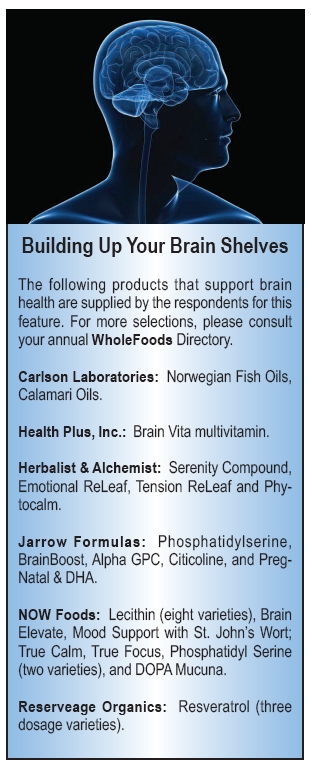 Acetyl-l-carnitine also protects against age-related memory decline, according to Kroner. Numerous scientific studies, including double-bind, placebocontrolled clinical trials, have suggested that this amino-acid-like compound stands to offer the best hope for inhibiting the degenerative processes, which lead to memory-related problems, and it has also been shown to support the recovery process following some forms of damage, he says.
Acetyl-l-carnitine also protects against age-related memory decline, according to Kroner. Numerous scientific studies, including double-bind, placebocontrolled clinical trials, have suggested that this amino-acid-like compound stands to offer the best hope for inhibiting the degenerative processes, which lead to memory-related problems, and it has also been shown to support the recovery process following some forms of damage, he says.
A branded citicoline (Cognizin from Kyowa Hakko) is a water-soluble compound essential for the synthesis of phosphatidylcholine, a major constituent of brain tissue, Todd describes. “Citicoline enhances communication between neurons in the brain to support visual function and protect neural structures from free radical damage. Both clinical and laboratory research indicates that Cognizin Citicoline supports memory function and healthy cognition,” she explains.
Citicoline has several mechanisms of action, she adds. It increases cell signaling of acetylcholine, dopamine and noradrenaline; increases functional integrity of PS, phosphatidylcholine and phosphatidylethanolamine and encourages activity of adenosine triphosphate in the brain, resulting in better focus, concentration and recall.
Sabinsa offers several botanically derived ingredients found in a variety of brain health support supplements. Prakash explains: “Resveratrol and analogs in the form of Resvenox and Pterostilbene 90%, circulatory support from ginger extract, Venocin (horsechestnut extract), Centellin (Centella asiatica extract) and clinically validated natural ingredients from the Ayurvedic tradition Bacopin (Bacopa monniera extract) proven to improve memory and cognition in children and adults, as well as support the management of stress and anxiety; Ashwagandha (Withania somnifera) proven to support the management of age related decline in brain functions, Mucuna pruriens (a source of L-DOPA) extract proven to support alertness and the management of Parkinson’s disease, have a long history of traditional medicinal use.”
In summary, this category is rather vast, but there exists sound scientific validation that supplementing with the variety of nutraceuticals and herbs mentioned herein may address healthy support of brain function for the longterm. Think about it! WF
References
1. S. Carlson, “Docosahexaenoic Acid Supplementation in Pregnancy and Lactation,” Am. J. Clin. Nutr. 89 (2), 678S–684S (2009).
2. N. Shapira, “Modified Egg as a Nutritional Supplement during Peak Brain Development: A New Target for Fortification,” Nutr. Health 20 (2), 107–118 (2009).
3. M. Brooks, “Organophosphate Pesticides Linked to ADHD,” Pediatrics, June 2010, published online May 17.
4. A.R. Marks, et al., “Organophosphate Pesticide Exposure and Attention in Young Mexican- American Children,” are Amy R. Marks, Kim Harley, Asa Bradman, Katherine Kogut, Dana Boyd Barr, Caroline Johnson, Norma Calderon, and Brenda Eskenazi Environmental Health Perspectives. http://www.medscape.com/viewarticle/727225
5. G.I. Papakostas, et al., “S-Adenosyl Methionine (SAMe) Augmentation of Serotonin Reuptake Inhibitors for Antidepressant Nonresponders with Major Depressive Disorder: A Double-Blind, Randomized Clinical Trial,” Am. J. Psychiatry 167 (8), 942–948 (2010).
6. R.K. McNamara, et al., “Selective Deficits in the Omega-3 Fatty Acid Docosahexaenoic Acid in the Postmortem Orbitofrontal Cortex of Patients with Major Depressive Disorder,” Biol. Psychiatry 62 (1), 17–24 (2007).
7. G. Fontani, et al., “Cognitive and Physiological Effects of Omega-3 Polyunsaturated Fatty Acid Supplementation in Healthy Subjects,” Eur. J. Clin. Invest. 35, 691–699 (2005).
8. J.A. Conquer, et al., “Fatty Acid Analysis of Blood Plasma of Patients with Alzheimer’s Disease, other Types of Dementia, and Cognitive Impairment,” Lipids 35, 1305–1312 (2000).
9. G.P. Lim, et al., “A Diet Rich with the Omega-3 Fatty Acid Docosahexaenoic Acid Reduces Amyloid Burden in an Aged Alzheimer Mouse Model,” J. Neurosci. 25, 3032–3040 (2005).
10. H. Dolan, et al., “Atherosclerosis, Dementia, and Alzheimer Disease in the Baltimore Longitudinal Study of Aging Cohort,” Ann. Neurol. 68 (2), 231–240 (2010).
11. M.C. Morris, et al., “Relation of the Tocopherol Forms to Incident Alzheimer’s Disease and to Cognitive Change,” Am. J. Clin. Nutr. 81 (2), 508–514 (2005).
12. V. Bragin, “Integrated Treatment Approach Improves Cognitive Function in Demented and Clinically Depressed Patients,” Am. J. Alzheimers Dis. Other Demen. 20 (1), 21–26 (2005).
Lisa Schofield is a freelance writer based in Freehold, NJ.
Published in WholeFoods Magazine, October 2010.

